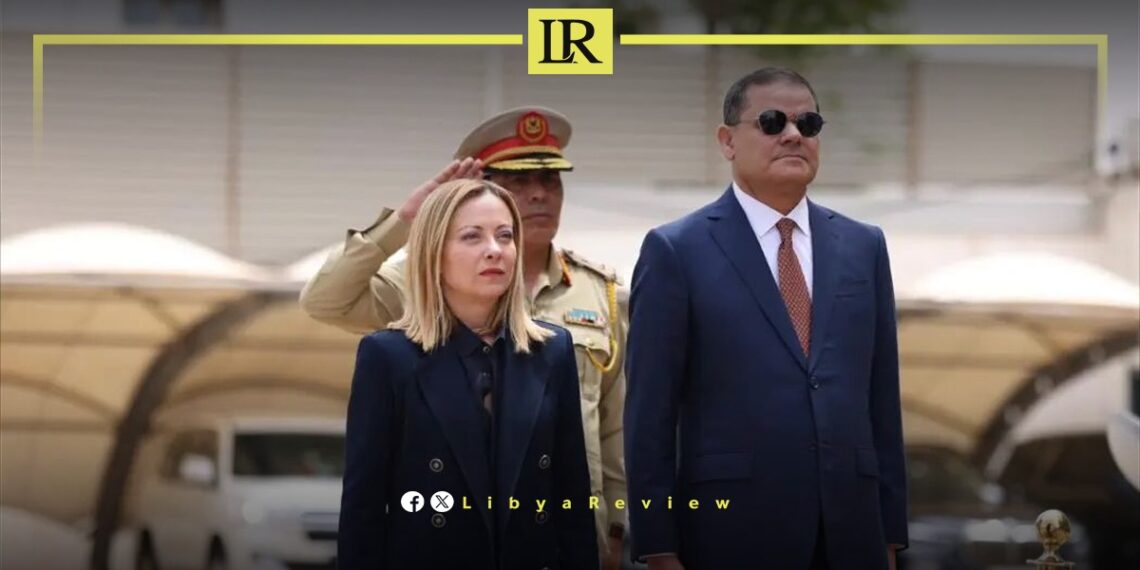On Tuesday, Italian Prime Minister Giorgia Meloni embarked on a significant diplomatic visit to Libya, emphasizing Italy’s commitment to fostering robust relationships with key Libyan figures and supporting national unity. Her visit includes crucial meetings in both Tripoli and Benghazi.
In Tripoli, Prime Minister Meloni met with Abdul Hamid Dbaiba, the head of the interim Government of National Unity (GNU), and Mohamed al-Mnifi, head of the Presidential Council. The visit underscores the strategic importance Italy places on its relationship with Libya, given their shared interests in Mediterranean security and migration management.
Accompanying Prime Minister Meloni is a high-profile delegation including Anna Maria Bernini, Minister of Higher Education and Research; Orazio Schillaci, Minister of Health; and Andrea Abodi, Minister of Youth and Sport.
The delegation plans to sign multiple declarations of intent with their Libyan counterparts, focusing on cooperation in higher education, research, healthcare, sports, and youth programs. These initiatives are part of the broader “Mattei Plan,” aimed at strengthening Italy’s ties with African nations.
Following her engagements in Tripoli, Prime Minister Meloni is scheduled to meet with the General Commander of the Libyan National Army (LNA) Field Marshal Khalifa Haftar in Benghazi. This meeting is particularly noteworthy as it aligns with Italy’s longstanding policy of maintaining open channels with all sides of the Libyan political spectrum to promote peace and stability.
This visit marks a continuation of Italy’s proactive foreign policy in Libya, building on Prime Minister Meloni’s prior trip in January of the previous year.
During her visit, Meloni will reiterate Italy’s commitment to Libya’s stability, including via support for United Nations efforts at mediation for an agreement for presidential and parliamentary elections, Italian premier’s office sources said
.
Italy is keen to solidify its role as a principal partner in Libya, leveraging historical connections and strategic interests to support Libya’s journey towards stability. Through comprehensive engagement, Italy aims to enhance bilateral cooperation, ensure regional security, and effectively manage migration, reflecting its geopolitical and economic priorities in the Mediterranean region.


